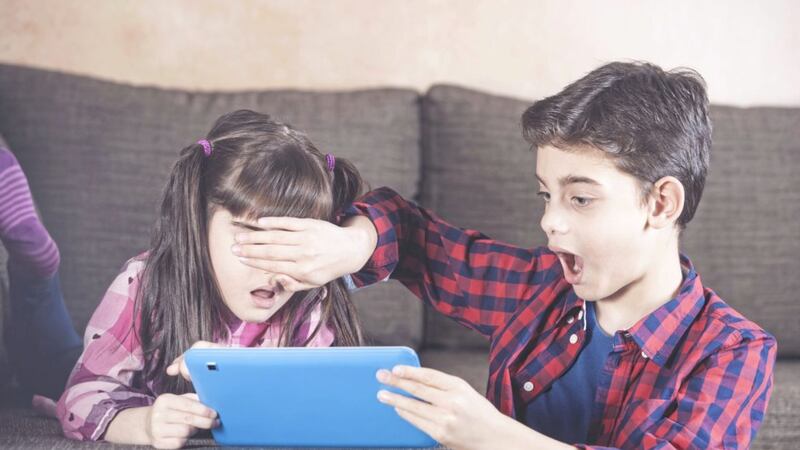HIGH-profile Belfast media lawyer Paul Tweed is taking a landmark case to force YouTube to remove content his client alleges is defamatory.
A court in Switzerland has already ordered its removal to no avail, so Tweed is going to Dublin, where YouTube owner Google has its European headquarters.
For once I will be cheering on the DUP’s favourite libel lawyer, as I have been in a decade-long battle to keep YouTube away from my kids.
Those of you not blessed with the gift of childlessness may be unaware of YouTube’s pernicious addictiveness to children. Its endless carousel of short, frenetic videos and rabbit hole of recommendations commands just enough attention to keep young eyes transfixed for hours.
The generation gap revealed - or created - by what my kids choose to watch is incomprehensible: videos of people playing video games are a favourite. Home-made spoofs of popular cartoons are another, which is how I became painfully aware of the platform’s technical shortcomings.
YouTube has parental controls on its main website and dedicated children’s channels. It tries not to distribute pornography to anyone and has automatic systems to ensure age-appropriate content and consistent suggestions.
However, with 500 hours of material being added every minute, none of this is infallible. It might not always distinguish between Peppa Pig and ‘Scottish Peppa Pig’, for example, as I discovered when my four-year-old son asked “why is Daddy Pig such a fat f****** b******?”
Nor might it know which My Little Pony cartoons have been dubbed over by men interested in more than the magic of friendship. Fortunately, my wife and I were in the room when our six-year-old daughter played one of these videos, although we were frozen in disbelief for several almost-crucial seconds.
Keeping children offline can be achieved in desperation by confiscating or password-locking internet devices. The problem with YouTube is that it has also become a television channel in every respect, apart from regulation of content and watershed hours.
It first appeared on my television via our Virgin cable service, with an option to block it using a PIN. Then a software update to the cable box removed this option unannounced.
I called Virgin to ask if we could have YouTube removed from our television package. Not possible, I was told, but there was a parental control setting.
This could only be set to on or off, with the usual issue of not catching all unsafe material. Keeping the switch on required staying logged into media box and online YouTube accounts in an incomprehensible, unreliable fashion.
A while later we had to buy a new television, after someone - a Scottish Peppa Pig fan is suspected - poured a glass of water down the back of the old one.
The new television had YouTube installed as an unremoveable ‘app’, again with only an on/off parental setting. After a small finger cracked the screen on that TV, our next one had YouTube directly accessible from a button on the remote.
Switching the internet router off stops YouTube but also stops many other services on the television and prevents any adult from working in the house. It does not stop the kids switching the router back on again the moment your back has turned - YouTube has not rotted their brains entirely.
All this makes a mockery of the UK’s television regulation regime. It is as if the controller of CBBC has been replaced with a piece of software that occasionally follows Blue Peter with a blue movie.
The fact YouTube is now hard-wired into every media box and television demonstrates Google’s overwhelming economic power and how it has national authorities outgunned.
Media regulation is not devolved. UK television regulator Ofcom has tried challenging YouTube in recent years and has had channels on the platform taken down. However, existing legislation requires such channels to be ‘TV-like’, have a human editorial process and for editor and platform to be based in the UK.
The government pledged last year to give Ofcom specific remit over “online harms”, enforced by large fines, yet Dublin-based Google will be outside its jurisdiction. This is why Tweed’s case is of interest to parents. Predictably, there is also a Brexit dimension: the UK is largely copying EU-wide efforts and may end up pleading to be included in them.
I must confess to my own responsibility. Even when it is practical to switch YouTube off, the misleading peace it guarantees is hard to resist.
That’s how the f****** b******** get you.








